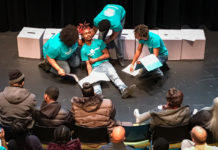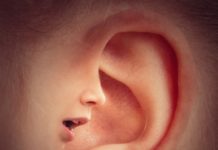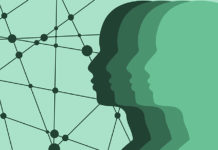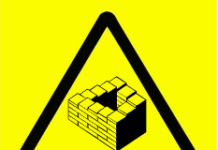Monthly Archives: July 2019
What Separation From Parents Does to Children: ‘The Effect Is Catastrophic’
From The Washington Post: The reason child-parent separation has such devastating effects is because it attacks one of the most fundamental and critical bonds in human biology.
Young People Are Using Musical Theater to Heal Their Trauma
From NationSwell: Chicago's Storycatchers Theatre helps justice-involved youth find their voices and resolve old traumas by making them the stars of the show.
U.S. Politicians Now “Trauma Informed”—Should We Be Hopeful?
It is good that the general public is finally hearing about the ACE Study, but I do not count on U.S. politicians to address the core implications of the ACE findings—the need to re-make U.S. society so as to (1) prevent preventable adverse childhood experiences, and (2) create a society in which healing from trauma can more easily occur.
Congress Holds Historic Hearing on Childhood Trauma
On July 11, the House Committee on Oversight and Reform held its first-ever hearing on childhood trauma, featuring emotional testimony from survivor witnesses, as well as a number of prominent public health experts and government officials.
An Open Letter to Howard Stern, the “Poster Boy for Psychotherapy”
Dear Howard Stern: What may come as a surprise to you is that the quality of talk therapy that was available to you—time-intensive, in-depth sharing of feelings, exploring childhood traumas, examining and changing difficult personality traits—is steadily becoming unavailable to the average American.
‘Freedom Is Therapeutic’: Trieste’s Mental Health ‘Revolution’
From the BBC/People Fixing the World: In 1978, Trieste led a ‘revolution’ in Italian mental health care by closing its asylums and ending the restraint of patients. Today the city is recognized by the WHO for its pioneering work.
Teacher Perspectives on Student ADHD Medication Use
Qualitative study examines patterns in teacher attitudes and knowledge related to medication of students for ADHD-type behaviors.
When Researchers Listen to People Who Hear Voices
From Yale Medicine Magazine: The line between 'mental illness' and genius has long been known to be razor-thin. Clairaudients, or psychics who hear voices, are helping clarify the connection.
Learning a Different Way: An Interview with Maori Psychiatrist Diana Kopua
MIA’s Ayurdhi Dhar interviews Diana Kopua about the Mahi a Atua approach, the global mental health movement, and the importance of language and narratives in how we understand our world and ease our suffering.
Stigma and Discrimination Linked to the Biomedical Model of Mental Health
Study traces the history of biomedical explanations of psychopathology to show how stigma and discrimination are reinforced when other possible explanations are ignored.
End Kendra’s Law Now: Racist, Classist Practices in Involuntary Psychiatry Persist
In addition to involuntary outpatient commitment being an assault on and targeting people who are living in or near poverty, the statistics demonstrate racial disparities in the application of involuntary outpatient commitment.
Is Medicine Overrated?
From Scientific American: Given medicine’s poor record, physicians should prescribe and patients consume far fewer medications, a new book argues.
Positive Antidepressant Study “Misleading” and “Erroneous”
An analysis of last year’s positive finding in The Lancet about antidepressant efficacy shows errors, obfuscations, and misrepresentations.
Andrew Rich: “I Didn’t Know Stuff Like This Existed”
In this second part of MIA’s report on compulsory outpatient treatment orders, Michael Simonson tells of how he came to report on this topic, the results from MIA’s survey of people who have experienced such forced treatment, his interviews with several of the survey respondents, and more on Andrew Rich’s life.
Why Don’t Prescribers Discuss Antidepressant Discontinuation?
In a new study, prescribers identify barriers to discussing antidepressant discontinuation with patients.
Twenty Years After Kendra’s Law: The Case Against AOT
The proponents of compulsory outpatient treatment claim that it leads to better outcomes for the recipients, and protects society from violent acts by the "seriously mentally ill." Those claims are belied by history, science, and a critical review of the relevant research.
Why I Take Drugs and Don’t Plan to Stop
If the drugs I am prescribed did not benefit me overall, believe me, I would no more take them willingly than I would swallow rat poison. I went through many attempts to wean myself, but invariably the loss of my ability to do art brought me to the place where I went back on them. I remain on them and I want to remain on them.
FDA Enforcement Actions Plummet Under Trump
From Science: 'Warning letters'—a key tool for keeping dangerous or ineffective drugs, devices and tainted foods off the market—have fallen by a third since Trump took office.
Talking About Psych Diagnoses and Drugs: A Primer for Parents & Professionals
It is important to tell parents the truth about what can and cannot be known about their child. In this way, people come to appreciate that labels and treatments offered by psychiatric professionals are far from being grounded in hard science.
System Change Toward a Green Movement in Mental Health
As a counter narrative, I believe that understanding system change and reform in mental health with a "green" lens makes use of a powerful theme which is increasingly accepted — and it lays out a road map to make innovative programs and initiatives the new norm for system-wide responses to mental health challenges.
Lack of Clear Guidelines Prevent Clinicians from Reducing Antipsychotics
A recently published study from noted critical psychiatry expert Joanna Moncrieff explored the barriers that prevent clinicians from helping service users in discontinuing or...
Why We Need an Empathy Revolution
From Mindful: By understanding how empathy works and can be augmented in ourselves and our children, we have one of the key tools to cultural transformation.
Benzodiazepine Awareness 2019
A special set of interviews for W-BAD 2019. We speak with Project Manager for W-BAD Rocks of Kindness, Janelle. We also chat with physician and Director of the Benzodiazepine Information Coalition Christy Huff MD and we hear from Stephen Wright MD, addiction specialist and medical consultant to the Alliance for Benzodiazepine Best Practices.
Discontinuation of Antipsychotics Improves Cognitive Functioning
A study, recently published in Psychological Medicine, examined the cognitive functioning of individuals with schizophrenia who discontinued antipsychotics, and those who maintained their antipsychotic...
Equal Legal Capacity or ‘Supported Decision-Making’?
At a recent conference on legal capacity, I was struck by the failure of another invited expert to adhere to the paradigm of supported decision-making as articulated by the CRPD Committee. We still need to work to ensure that this paradigm is well understood and appreciated, despite the progress made in national reforms.

































